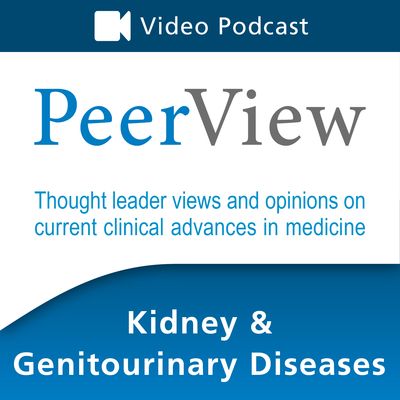PeerView (PVI) is a leading provider of high-quality, innovative continuing education (CME/CE/CPE and MOC) for clinicians and their interprofessional teams. Combining evidence-based medicine and instructional expertise, PeerView activities improve the knowledge, skills, and strategies that support clinical performance and patient outcomes. PeerView makes its educational programming and expert-led presentations and symposia available through its network of popular podcast channels to support specific specialties and conditions. Each episode includes a link to request CME/CE credit for participation. PeerView is solely responsible for the selection of topics, the preparation of editorial content, and the distribution of all materials it publishes.
http://ww2.peerview.com
John B. Buse, MD, PhD - Complex Cases in Contemporary Practice: Applying New Evidence for SGLT2 Inhibitors in the Management of Patients With Comorbid Cardiometabolic Diseases
Go online to PeerView.com/KYQ860 to view the activity, download slides and practice aids, and complete the post-test to earn credit. Cardiovascular disease (CVD), type 2 diabetes mellitus (T2DM), and chronic kidney disease (CKD) have intersecting risk factors, and their prevalence has increased dramatically over the past several decades. Accumulating evidence has shown that SGLT2 inhibitors not only improve glycemic control but also potentially target other chronic diseases at the cardiorenal intersection, resulting in improved cardiovascular and renal endpoints for patients with or without T2DM. Revised treatment guidelines from leading endocrinology and cardiology societies prioritize SGLT2 inhibitors, especially in patients with T2DM and atherosclerotic CVD, heart failure, and/or CKD. In this activity, based on a recent live webcast, a multidisciplinary panel of experts reviews FDA-approved indications, treatment guidelines, and the accumulating evidence for SGLT2 inhibitors in comorbid cardiometabolic diseases. To integrate clinical evidence into practice, the experts also present complex patient cases to offer strategies for personalizing treatment plans and improving outcomes for patients with T2DM, heart failure, and CKD. Upon completion of this activity, participants should be able to: Recognize FDA-approved indications and the placement of SGLT2 inhibitors in current treatment guidelines, Summarize the proposed mechanism(s) supporting the therapeutic potential of SGLT2 inhibitors to target cardiorenal endpoints in patients with and without T2DM, Evaluate safety and efficacy results from clinical trials and real-world studies of SGLT2 inhibitors to optimize cardiorenal outcomes in patients with and without T2DM, Incorporate SGLT2 inhibitors, as appropriate, into the care of clinically complex patients with comorbid cardiovascular, renal, and/or metabolic diseases.
